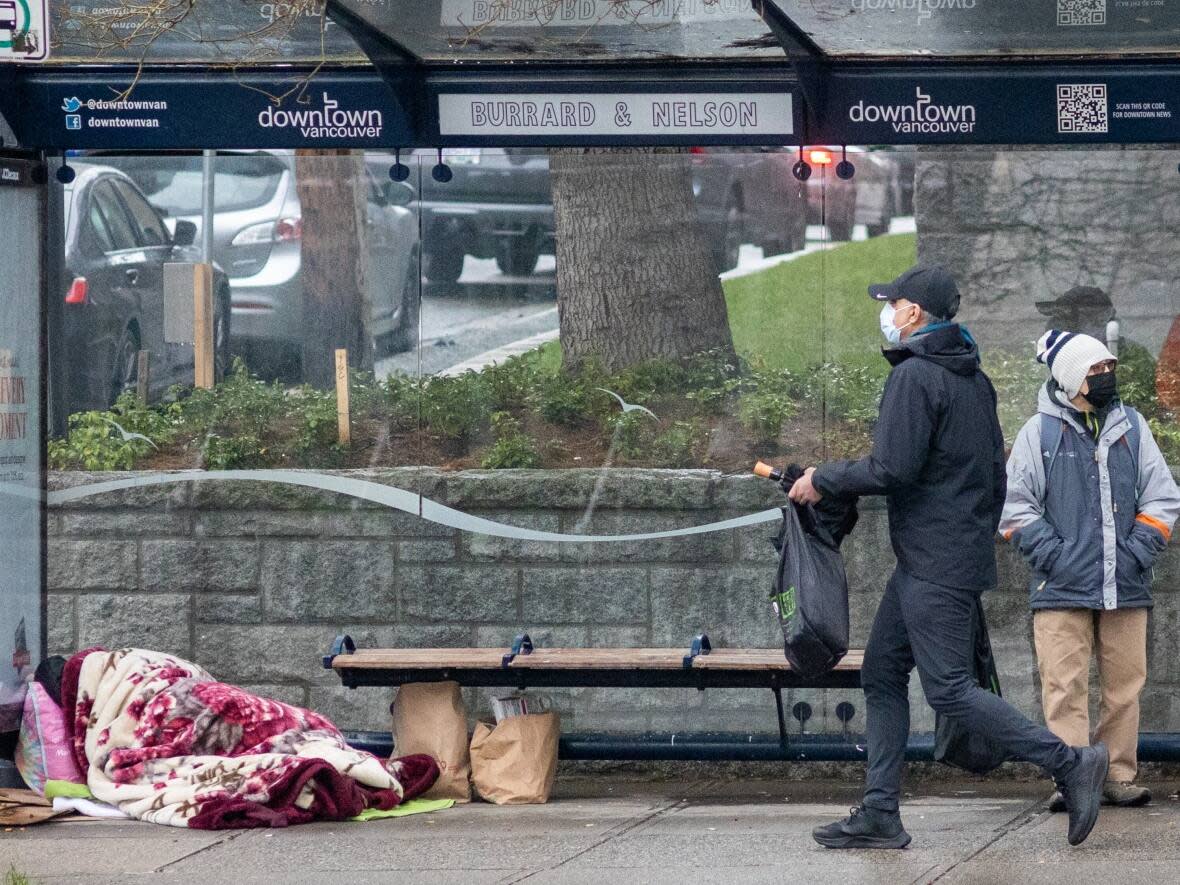Homeless people left to fend for themselves amid extreme-cold warning, advocates say

Advocates for unhoused people in B.C.'s Lower Mainland say not enough is being done to help during the current record-breaking cold snap.
Much of the province is currently under an extreme weather warning due to snowfall and cold temperatures, with Arctic outflows affecting regions in the South Coast and the Fraser Valley.
The province increased the number of shelter spaces in anticipation of the extreme cold last week, with numerous cities also activating their extreme weather response shelters to help those experiencing homelessness.
However, Ward Draper, a pastor with 5 and 2 Ministries who works with homeless populations in Abbotsford, says the province isn't "keeping pace" with the increasing numbers of people who are having to live on the streets.
WATCH | Not enough help available, says pastor
"When I started doing this stuff about 18 years ago, we had about 100 people on the streets," he said.
"Now we have 500 or so, with no sign of stopping. We don't have enough space for people."
The province's cold snap has reached historic proportions, with Vancouver recording its lowest temperature in 52 years on Dec. 27.
Nicole Mucci, spokesperson for the Union Gospel Mission in Vancouver, says frostbite, pneumonia and hypothermia are major concerns for many people who are seeking shelter during the frigid temperatures.
"This is one of the coldest stretches we've had in many, many years," she said.
"We're doing our best to try to make sure [people experiencing homelessness] have got the warm gear they need. But it's dangerous out there."
Draper says the situation has been exacerbated by a spike in COVID cases, with enforced social distancing at shelters.
He says the province's recent move to open more shelter spaces was a "Band-Aid on a fire," helping the situation slightly, but not enough for all the people living outside.
"We've probably got in the neighborhood of about 150-ish beds," he said. "But I mean, that's 350 people still without any sort of indoor space."
"We just need people to realize that we need help today. We need help yesterday … I'm tired. My friends outside are tired and it's just not enough."

 Yahoo Movies
Yahoo Movies 
